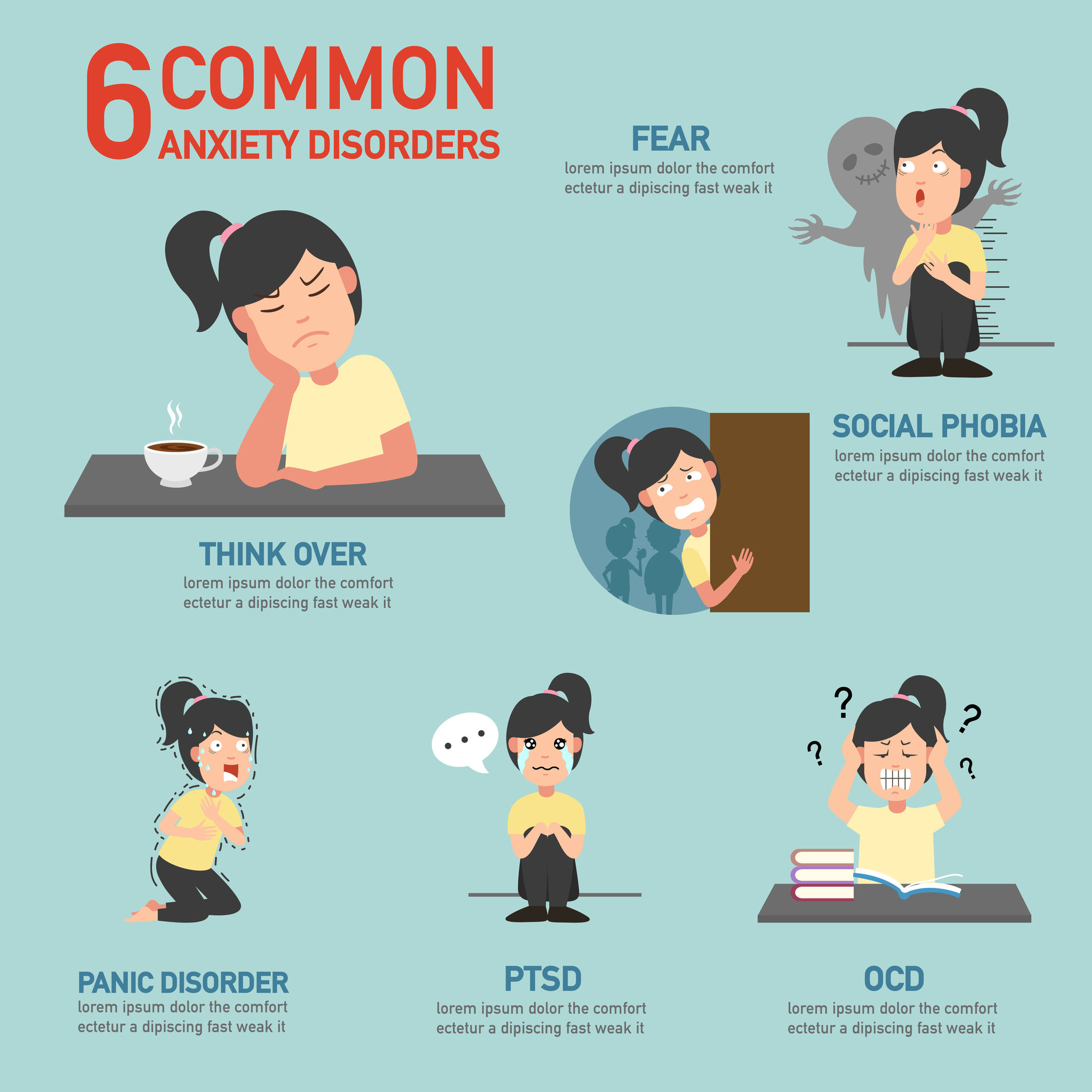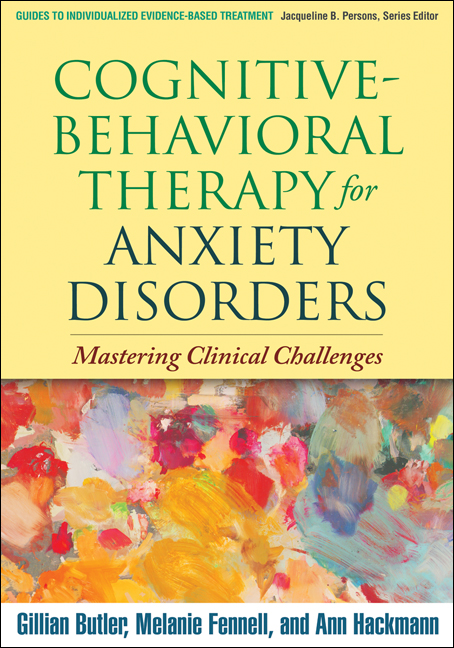Evidence-based counselling for anxiety with empathetic guidance
Evidence-based counselling for anxiety with empathetic guidance
Blog Article
Discovering Different Methods in Therapy for Stress And Anxiety Disorder for Lasting Change
When dealing with stress and anxiety conditions, it's necessary to explore a variety of counseling approaches. Each approach supplies one-of-a-kind insights and tools to help you handle your symptoms successfully. You may locate that incorporating strategies can generate the very best results. However, understanding the nuances of these strategies is key to fostering lasting change. What happens if the appropriate combination could launch a new degree of emotional well-being for you?
Understanding Stress And Anxiety Conditions: A Quick Review
Anxiety disorders, which affect millions of individuals worldwide, can considerably impact everyday life. You may experience overwhelming feelings of concern or fret that appear unmanageable. These sensations can cause physical symptoms like an auto racing heart, sweating, or even lightheadedness. Typical kinds of stress and anxiety conditions include generalized anxiety disorder, panic disorder, and social anxiousness problem. Each has one-of-a-kind indicators, however they all share a tendency to disrupt your routine and relationships.Understanding the source of your anxiousness is crucial. It may come from genetics, mind chemistry, or life experiences. Identifying your triggers can assist you manage your actions much better. It is necessary to bear in mind that you're not alone in this struggle. Many individuals deal with similar obstacles, and looking for assistance is a strong action toward feeling much better. By discovering about anxiousness disorders, you're currently on the course to understanding and managing your problem better.
Cognitive-Behavioral Treatment: Challenging Adverse Idea Patterns
In Cognitive-Behavioral Treatment, you'll start by identifying the negative thought activates that add to your anxiety. You'll function on replacing them with even more positive choices when you recognize these thoughts. Together, you'll develop reliable coping techniques to assist manage your anxiety in everyday circumstances.
Determining Adverse Idea Triggers

Recognizing the certain triggers behind your negative ideas can be necessary in managing anxiety when you run into minutes of distress. Beginning by taking note of scenarios that provoke sensations of concern or fear. Is it a congested room, a future due date, or a conversation with certain people? Write down these instances in a journal. This will aid you recognize patterns in your thinking. Notice physical experiences that accompany your adverse ideas, like an auto racing heart or rigidity in your breast. By pinpointing these triggers, you gain insight into what's fueling your stress and anxiety. Comprehending these links is the primary step in testing those ideas and inevitably regaining control over your psychological actions.
Changing Ideas With Positives
Testing unfavorable idea patterns is a crucial action in changing your state of mind and reducing stress and anxiety. You may commonly discover yourself trapped in cycles of self-doubt or disastrous thinking. As opposed to letting these thoughts dictate your sensations, technique replacing them with positive affirmations or reasonable alternatives. When you assume, "I can't manage this," change it to, "I can manage difficulties one action at a time." This basic modification can greatly impact your emotion. On a regular basis recognizing and countering these negative thoughts assists produce a healthier internal discussion. Remember, it requires time and effort, but regularly exercising this technique can cause long-term change, empowering you to encounter stress and anxiety with restored self-confidence and durability.
Building Coping Techniques With Each Other
Replacing adverse thoughts is only the start of managing anxiousness effectively. To develop lasting change, you need to develop coping strategies that equip you. Cognitive-Behavioral Treatment (CBT) helps you determine and test those unhelpful thought patterns. With each other, you and your counselor can check out just how these ideas impact your sensations and behaviors.Start by creating practical methods, like journaling or mindfulness workouts, that allow you to confront stress and anxiety head-on. When you encounter your fears slowly, you'll find out to react in a different way.

Mindfulness and Acceptance-Based Approaches: Growing Present-Moment Understanding
As you navigate the intricacies of stress and anxiety, including mindfulness and acceptance-based techniques can considerably boost your capability to cultivate present-moment understanding. By concentrating on the present moment, you'll locate that you can observe your ideas and sensations without judgment (Counseling services for anxiety). This technique aids you recognize your anxiety without feeling overwhelmed by it.Engaging in mindfulness workouts, such as deep breathing, body scans, or led meditations, allows you to ground yourself in your current experience. Acceptance-based techniques motivate you to welcome your feelings as opposed to battle versus them. They shed their power over you.Incorporating these techniques right into your day-to-day routine can transform how you react to anxiousness when you approve your feelings. You'll establish strength and discover to navigate stressful situations with better convenience. Inevitably, cultivating present-moment understanding lays the foundation for lasting adjustment, equipping you to lead a much more fulfilling life
Direct Exposure Treatment: Facing Worries Gradually
Direct exposure therapy helps you challenge your concerns in a progressive way, making it much less overwhelming. You'll learn methods to encounter anxiety-provoking circumstances step by action, while likewise building coping approaches to handle your reactions. This strategy equips you to take control and reduce anxiousness gradually.
Progressive Exposure Strategies

When encountering anxiety, progressively facing your fears can be a powerful way to reclaim control. This strategy, called steady exposure, entails slowly revealing on your own to the circumstances or objects that activate your anxiousness. Start with much less challenging circumstances and progressively work your means up to more tough ones. If you're worried of public speaking, you might begin by talking in front of a mirror, after that advance to sharing ideas with a pal, and at some point address a small group. Each step assists desensitize you to the anxiety, building your confidence in time. Keep in mind, it's important to pace yourself and celebrate small success as you move with this procedure, enhancing your capacity to take care of anxiety effectively.
Building Coping Techniques
Building efficient coping techniques is necessary for managing stress and anxiety, especially as you confront your fears gradually - Counseling services for anxiety. One effective approach is direct exposure treatment, where you begin by encountering your concerns in a controlled way. Start with much less intimidating circumstances and gradually function your method as much as even more difficult situations. This steady direct exposure helps desensitize you to anxiety triggers, making them much less overwhelming.Incorporate relaxation strategies, such as deep breathing or mindfulness, to soothe your mind during direct exposure. Track your progression, commemorating small triumphes along the road to increase your self-confidence. Remember, it's all right to take your time; the objective isn't perfection however consistent enhancement. By constructing these techniques, you'll encourage on your own to navigate anxiety and welcome life much more fully
Psychodynamic Therapy: Revealing Root Causes of Stress And Anxiety
Psychodynamic therapy explores therapy for anxiety the unconscious mind, disclosing the origin of your anxiety. By examining your ideas, sensations, and past experiences, this strategy helps you uncover underlying disputes and unsolved concerns that may add to your present stress and anxiety. You'll collaborate with a therapist to check out youth experiences, connections, and psychological patterns that form your reactions today.As you get understanding right into these deeper layers of your psyche, you'll begin to identify exactly how past occasions influence your existing actions. This understanding can result in catharsis, enabling you to process feelings you may have suppressed.Through the therapeutic partnership, you can additionally identify defense reaction that may have established in time, offering a more clear course to transform. Ultimately, psychodynamic therapy outfits you with the tools to resolve your anxiousness at its core, promoting long-term makeover in your emotional wellness.
Holistic and integrative Methods: Incorporating Strategies for Greater Efficacy
Integrating different healing strategies can improve your journey towards taking care of anxiousness much more properly. By integrating components from cognitive-behavioral treatment, mindfulness methods, and alternative techniques, you can produce an individualized method that addresses your special needs. You might make use of cognitive-behavioral techniques to test negative thought patterns while incorporating mindfulness workouts to ground yourself in the present moment.Additionally, checking out holistic methods such as yoga or reflection can advertise relaxation and minimize anxiousness signs. This mix allows you to establish better self-awareness and resilience.Experimenting with these diverse techniques can aid you discover what resonates most with you. Bear in mind, it's about discovering a harmony that works, instead than sticking to a solitary technique. This integrative strategy not only uses prompt relief however also promotes long-lasting skills for taking care of anxiety, equipping you to reclaim control over your life.
The Duty of Support Systems: Structure Resilience With Link
While it may appear that managing anxiousness is a singular trip, having a solid support group can play a necessary duty in your resilience. Bordering yourself with empathetic good friends, family members, or support system creates a risk-free space where you can honestly share your experiences and sensations. When you get in touch with others, you advise on your own that you're not the only one in this struggle.These relationships offer motivation and can offer useful coping methods that have actually benefited others. It's also an opportunity to obtain viewpoint; close friends can aid you see scenarios in different ways, minimizing sensations of isolation.Moreover, emotional support cultivates a feeling of belonging, which can considerably minimize anxiousness symptoms. By leaning on your support group, you can build durability and deal with challenges better. Keep in mind, reaching out for help is an indication of toughness, and it can make all the distinction in your trip toward managing anxiousness.
Frequently Asked Inquiries
What Are the Usual Symptoms of Anxiety Problems?
You may experience uneasyness, fatigue, trouble concentrating, impatience, muscle mass stress, and sleep disruptions. Physical signs can consist of fast heartbeat, sweating, and shivering. Acknowledging these indications early can aid you seek ideal assistance and therapy.
For How Long Does Therapy Typically Last for Stress And Anxiety Disorders?
Treatment for anxiety conditions typically lasts anywhere from a few weeks to several months. It really depends upon your individual requirements, progress, and the methods your specialist uses to assist you handle your stress and anxiety effectively.
Can Drug Be Made Use Of Together With Therapy for Anxiousness?
Yes, medication can most definitely be used together with treatment for anxiety. Integrating both approaches typically boosts therapy performance, assisting you manage signs and symptoms while exploring underlying concerns through therapy (Counseling services for anxiety). Constantly consult your healthcare supplier for tailored advice
Are There Self-Help Strategies for Handling Stress And Anxiety?
Yes, there are numerous self-help methods for managing anxiousness. You can practice mindfulness, engage in normal exercise, keep a balanced diet, develop a routine, and utilize deep breathing methods to help in reducing anxiety symptoms efficiently.
Exactly how Do I Know if I Required Specialist Aid for Stress And Anxiety?

Report this page